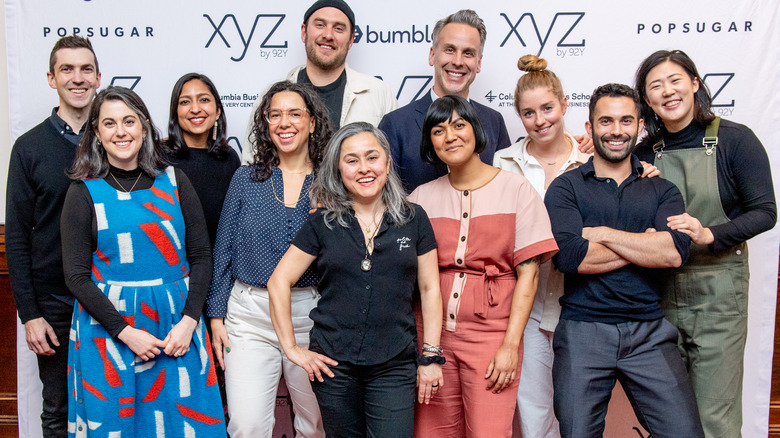Feedfeed Is Being Sued. Here's Why
Last week, Rachel Gurjar and Sahara Henry-Bohoskey filed a federal discrimination lawsuit against Feedfeed, a digital media company that primarily crowdsources recipes from Instagram. According to The Washington Post, they claim that while working there, they suffered racist and sexist comments, had their advancement deliberately slowed, and were consistently underpaid. Among their allegations were that Jake Cohen, former editorial and test kitchen director, verbally abused them by mocking Gurjar's non-native English, for example. They also said that founders Dan and Julie Resnick denied them overtime pay for work done on nights and weekends, and they barred them from the promotions they wanted for years by changing the job qualifications. All the while, Gurjar and Henry-Bohoskey were touted as evidence of Feedfeed's diverse and inclusive company culture. One year ago, they resigned.
Feedfeed denies the severity of the women's complaints. On Instagram, the Resnicks wrote, "We take the allegations of this nature very seriously and spent many months investigating each claim with a team of legal and HR experts. While we would never want to invalidate someone's feelings, the complaint is built on false, inaccurate, and misleading information." The company paid both Gurjar and Henry-Bohoskey about $30,000 each to make up for withheld overtime payments, but both told Today that the money did not cover the hours they worked.
The lawsuit echoes complaints made against Bon Appétit
Reading the complaints alleged in Gurjar and Henry-Bohoskey's lawsuit, one may recall the racial reckoning that took place in the Bon Appétit test kitchen in the summer of 2020. As reported by Vox, multiple employees of color described being tokenized for diversity and paid less than their white coworkers for the same type of work, while some white staffers came under fire for racist social media posts — including editor-in-chief Adam Rapoport, who resigned.
The scandal started an industry-wide conversation about racism in food media. Many noticed that food writers of color are expected to cover one cultural cuisine, while white writers have the freedom to explore all food. The expectation that Black writers can only write about soul food, for example, "reads to me as 'We only have room for people of color in a specific cultural niche,'" Jenny Huang, a food photographer and stylist, told Grub Street. More than one year later, the complaints against Feedfeed have outraged many food media figures on Instagram and may spur more critical examinations of the industry. Its founders, however, have not stepped down.

